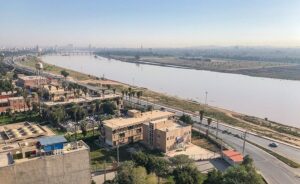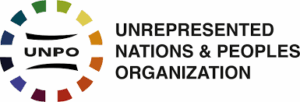Fatal Food Poisoning of 180 Workers at Asalouyeh Petrochemical Reveals Regime’s Indifference
The recent tragic incident at Asalouyeh Petrochemical, where 180 workers suffered from food poisoning and one lost his life, serves as yet another grim reminder of the Iranian regime’s disregard for the well-being of its people. The workers, employed by Kavian Petrochemical in the Asalouyeh region, were exposed to hazardous conditions due to the negligence of a contractor responsible for providing their food. This incident not only highlights the careless approach of the authorities but also underscores the stark inequalities and systemic corruption that continue to plague Iran’s labor sector.
Reports indicate that the food supply contractor, Donna Company, secured the contract primarily due to its connections with Bakhtar Holding, the Kavian Petrochemical conglomerate. Rather than ensuring the health and safety of the workers, the contractor’s profit-driven motives led to the provision of substandard and contaminated food, resulting in widespread illness. Tragically, one worker, Ramin Golestani, succumbed to the poisoning, while at least ten others remain hospitalized. This loss of life exemplifies the broader issue: the exploitation of workers by contractors more interested in maximizing profits than safeguarding the well-being of those under their charge.
Kavian Petrochemical’s public relations office has issued a statement indicating that a Bushehr University of Medical Sciences team has been tasked with investigating the incident. However, many workers remain skeptical of such investigations, fearing they will be superficial and fail to address the deeper problems of corruption and mismanagement. Workers have also raised concerns about discriminatory practices within the company, noting that the food provided to official personnel is of significantly higher quality than that given to contract workers. Such disparities reflect a broader trend where workers, particularly those in lower-tier positions, are treated as expendable.
This incident is not an isolated case but part of a larger pattern of disregard for workers’ rights and safety in Iran, particularly those of Arab workers. The regime’s neglect is compounded by a culture of corruption, where companies with the right connections can secure lucrative contracts, regardless of their capacity to deliver services safely and ethically. In this case, Donna Company’s ties to Bakhtar Holding allowed it to continue operating despite its evident failings, endangering hundreds of lives.
For many Iranians, the Asalouyeh poisoning is a clear example of how the regime’s policies prioritize profits and nepotism over the basic needs of its people. The death of Ramin Golestani and the suffering of his fellow workers stand as a stark testament to the regime’s failure to protect the most vulnerable members of society. While investigations may provide some insight into the immediate cause of the poisoning, they are unlikely to address the systemic issues that made this preventable tragedy possible.
The incident should serve as a wake-up call, not only for the regime in Iran but also for the international community. The conditions faced by the workers, especially Arab workers, in industries like petrochemicals, which are critical to the national economy, reveal the true cost of the regime’s indifference. Until there is a genuine commitment to improving labor conditions, enforcing safety standards, and addressing corruption at all levels, such tragedies will continue to occur, with ordinary Iranians bearing the consequences.
Mayasa
20.08.2024


















